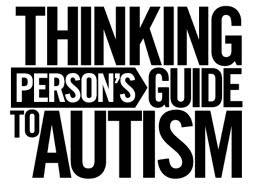 Come October 1, Americans will be able to start enrolling in Affordable Care Act (ACA, “ObamaCare”) health insurance programs, which will then be implemented January 1st. Since health care policy is so complex, we spoke with The Autistic Self-Advocacy Network‘s Ari Ne’eman about specific advantages, opportunities, and sticking points of the ACA for People with Disabilities. In addition, The Autistic Self Advocacy Network has just released a policy brief on the impact the Affordable Care Act is likely to have on people with intellectual and developmental disabilities and what advocates can do to encourage state and federal policymakers to make the most of the law.
Come October 1, Americans will be able to start enrolling in Affordable Care Act (ACA, “ObamaCare”) health insurance programs, which will then be implemented January 1st. Since health care policy is so complex, we spoke with The Autistic Self-Advocacy Network‘s Ari Ne’eman about specific advantages, opportunities, and sticking points of the ACA for People with Disabilities. In addition, The Autistic Self Advocacy Network has just released a policy brief on the impact the Affordable Care Act is likely to have on people with intellectual and developmental disabilities and what advocates can do to encourage state and federal policymakers to make the most of the law.
Ari Ne’eman: We view the Affordable Care Act as a significant opportunity for people with disabilities, particularly people with intellectual and developmental disabilities (I/DD). Most people with I/DD have access to health insurance coverage through Medicare and Medicaid — as a result, our main focus has been analyzing the impact of ACA on the quality of that coverage as well as the potential that ACA brings to facilitate access to private insurance for our community.
The Affordable Care Act’s most significant impact for people with disabilities is the end to pre-existing condition discrimination, which is huge. It’ll make it easier for the parts of our community that are not insured to gain access to coverage. However, just as significant is the insurance reforms that ACA mandates regarding benefits, access to providers and affordability. The law also includes substantial new options for states to take up regarding Medicaid home and community-based services. All in all, we think the law could have a major positive impact on people with disabilities, if properly implemented.








Thanks so much for sharing!